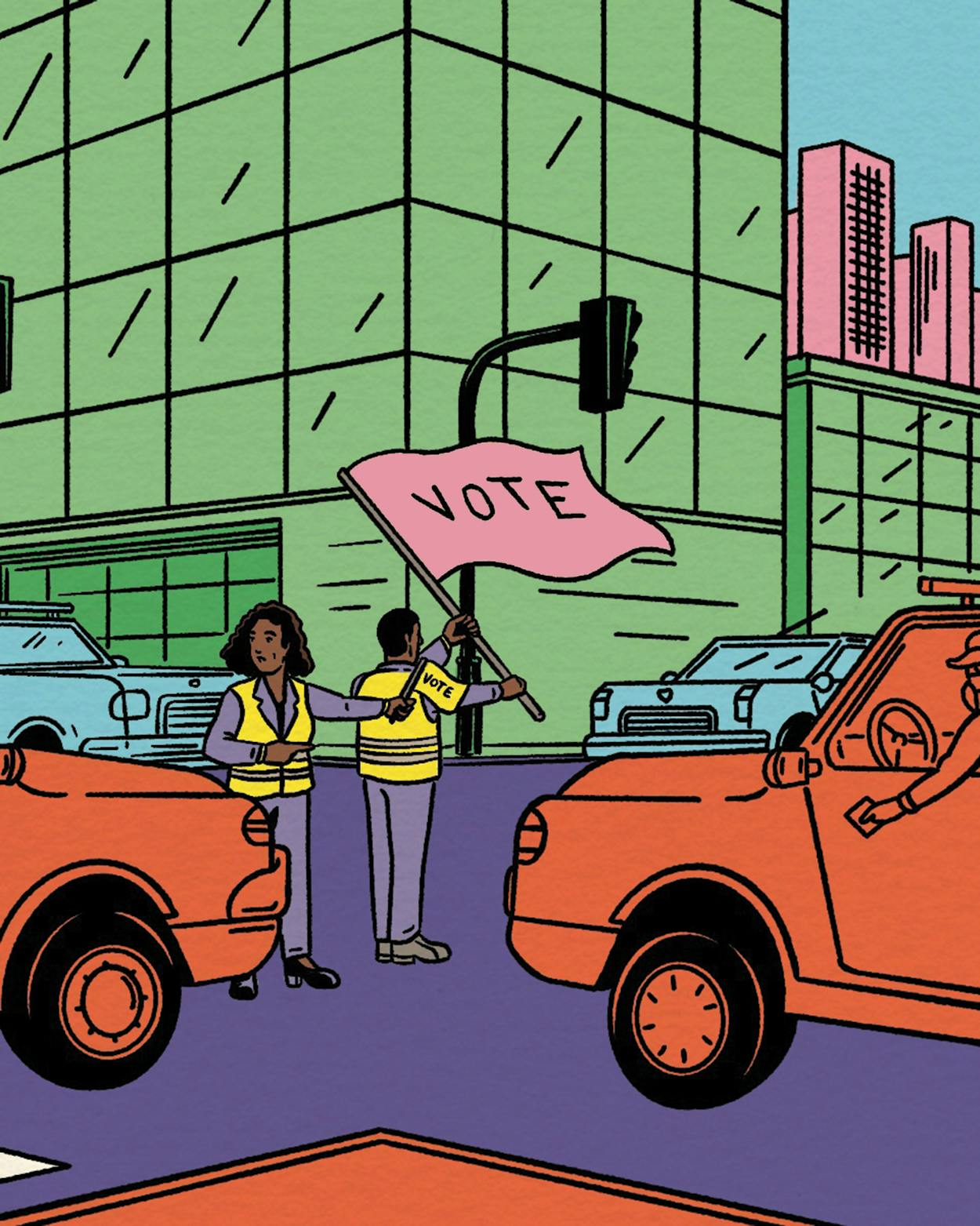For years, politicos and policy wonks have kicked around ideas for how to increase election turnout in Texas, where voters usually show up in pitifully low numbers. And Texas officials knew that if turnout did rise during 2020’s closely contested presidential election, the pandemic would pose tremendous challenges to our electoral infrastructure.
Enter 29-year-old Harris County Judge Lina Hidalgo and 34-year-old county clerk Chris Hollins. Under Hidalgo’s leadership, the Harris County Commissioners’ Court appropriated $29 million for the election, seven times more than in 2016. But just as important as the funding was choosing the right election administrator. When the sitting county clerk resigned in May, following a disastrous March primary election marred by six-hour lines and computer glitches, the commissioners selected Hollins, a management consultant at McKinsey and Company and the Texas Democratic Party’s vice chair of finance, to serve as interim clerk.
It was an unconventional pick: Hollins, a fifth-generation Texan, had never held public office or overseen an election. But he hit the ground running, embracing an array of innovative ideas, including 24-hour voting, drive-through voting, and ballot drop boxes. Hollins recruited 11,000 poll workers to staff a record number of early voting locations as well as Election Day polling places. And he spent heavily on personal protective equipment for both election workers and voters.
“It’s important that voters are able to cast their votes safely,” Hollins told Texas Monthly before the election, “but also to do so conveniently and with the peace of mind of knowing that their votes are going to be counted.”
Not all of Hollins’s ideas were universally embraced. Knowing that some people wouldn’t feel safe voting in person during a pandemic, he originally planned to mail absentee ballots to every one of Harris County’s 2.4 million registered voters. That move didn’t sit well with state Republicans, who repeated Donald Trump’s unfounded claims that the unsolicited ballots would lead to election fraud. Texas attorney general Ken Paxton sued Hollins to stop the plan; in the end, Hollins mailed ballots only to residents 65 and older.
Paxton’s lawsuit was just the opening salvo in state Republicans’ legal battle against Hollins. In October, Governor Greg Abbott ordered that counties have only one site for drop-off ballots—a move that disproportionately affected urban counties that tend to vote for Democrats. Hollins, who had intended to maintain a dozen drop-off sites within the 1,700-square-mile county, accused Abbott of engaging in “prejudicial and dangerous” actions, but the decision stood. Then, a week before Election Day, a group of Harris County Republicans sued Hollins over drive-through voting, claiming the practice was illegal under Texas election law. Hollins prevailed in court, but the lawsuit raised the frightening prospect that the 127,000 people who had already cast ballots at drive-through polling places would have their votes invalidated.
Despite all of this resistance, Hidalgo and Hollins’s efforts to encourage voter participation paid off: 68 percent of the county’s registered voters cast a ballot in the November election, the highest turnout there since 1992 and nearly 10 percentage points higher than in 2016. That eclipsed the turnout in the next two most populous counties—Dallas (66 percent) and Bexar (65 percent)—as well as the state’s overall 66 percent turnout.
Hollins has returned to the private sector, while Hidalgo has turned her attention to containing the spread of COVID-19. But their successful administration of the 2020 election, under difficult circumstances, may become a model for election officials statewide. Harris County’s experience suggests that when Texans are provided a safe, convenient opportunity to vote, they take it.
This article originally appeared in the January 2021 issue of Texas Monthly with the headline “Thinking Outside the Ballot Box.” Subscribe today.
- More About:
- Politics & Policy
- Bum Steers
- Best Thing in Texas
- Lina Hidalgo









